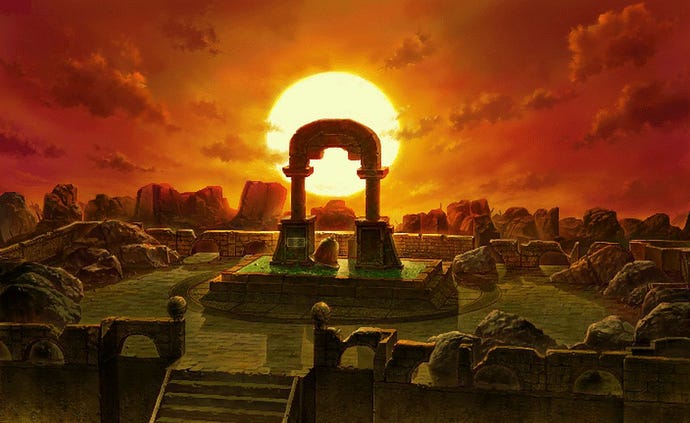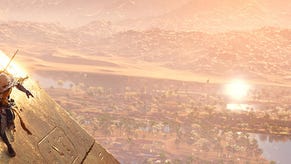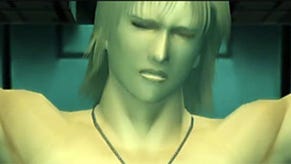Chrono Cross's Atmosphere Masterfully Frames One of the Saddest JRPG Characters
FATE is a cruel mistress indeed.
This article first appeared on USgamer, a partner publication of VG247. Some content, such as this article, has been migrated to VG247 for posterity after USgamer's closure - but it has not been edited or further vetted by the VG247 team.
August 2020 marks the 20th anniversary of Chrono Cross's North American release. Said anniversary offers the perfect excuse to talk about this wonderful, weird, and troubled JRPG from Square Enix. It's understandable that fans seize every opportunity to jabber about Chrono Cross; there's just so much to say.
I recently appeared in an a two-hour Chrono Cross-centric episode of Retronauts. A significant portion of the runtime is dedicated to sorting out the game's convoluted storyline—without much success, sadly. Chrono Cross's story isn't its strong point, which understandably drives potential players away.
Stories make up a major part of the JRPG experience, yet the story for Chrono Cross—the direct sequel to the best RPG of all time—is headache-inducing at best. Why, then, does Chrono Cross still receive so much love? Fans talk about how parts of it still move them to tears, even if they have little idea of what's going on.
It's atmosphere that carries Chrono Cross in the moments where its story fails. There are moments where Chrono Cross's beautifully-rendered set pieces meld with Yasunori Mitsuda's masterful soundtrack to perfectly frame a tragic moment or character. This combination is used to heart-wrenching effect with a doomed man who wears a goofy hat and gives the game's hero, Serge, the fight of his life.
The behatted man, Miguel, is a prisoner of fate. He "lives" in the Dead Sea, a haunting, frozen anomaly born of Chrono Trigger's broken future. When Crono and his friends saved the world, the shattered 2300 A.D. timeline condensed into frozen ripples and waves. Astute Chrono Trigger fans will even notice the Dead Sea contains big chunks of 2300 A.D.'s ruins, including bits of Site 16.
This is where my grip on Chrono Cross's story admittedly begins to slip. The Dead Sea is home to Chronopolis, which contains a "Frozen Flame" that's actually a fragment of the world-devourer, Lavos; only Serge can bond with it; etcetera, etcetera. I still can't tell you what Chrono Cross is about, exactly. I can, however, recall how Chrono Cross's music and graphics made me regard Miguel with awe and pity. The image of him standing at the Dead Sea's "ground zero" stuck with me for 20 years, and for good reason. Leene's Bell, Chrono Trigger's symbol of unity and friendship, lies shattered behind him against a perpetual blood-red sunset. Mitsuda's People Imprisoned by Destiny shivers in the background. Crono, Marle, and Lucca appear in front of Serge, but only to scold him with vague accusations about him being a world-destroyer.
Serge's visit to the Dead Sea is a gut-punch for fans of Chrono Trigger. Chrono Cross is thematically different from the first game, so any nostalgic tidbits it feeds us are special. But the Dead Sea is a glut of nostalgia that's broken, dark, and twisted. Sure, Leene's Bell is right there—but it's silent forever. Even Johnny, the cyborg who races you on Chrono Trigger's Mode-7 highway, makes an appearance as a corpse.
It made me angry when Chrono Cross twisted Chrono Trigger and handed it back to me. Chrono Trigger is a happy, hopeful game. I wondered why Chrono Cross director Masato Kato did wrong by it.
Years later, I'm still not comfortable with the direction of Chrono Cross's story, but I very much appreciate the cinematic way it tells said story. Kato clearly had a mood in mind for the game, and by the Dragon God, he nailed it. To this day, Serge's meeting—and battle—with Miguel is a story climax unlike any other.
Miguel appears after Serge is scolded by the shades of Crono, Marle, and Lucca. He gently tells Serge not to pay the specters any mind before he introduces himself. Miguel knows Serge quite well. When Serge was young, a demon panther attacked and poisoned him. Miguel set sail with Serge's father and the ailing boy in search of an antidote, but a storm blew them off course. They landed on the steps of Chronopolis, the lair of the Frozen Flame. The Flame called out to Serge and his father, but Miguel hung back and was claimed by Chronopolis's supercomputer, FATE. Miguel lingered in the dead city for four years until the formation of the Dead Sea. After the event, he was tasked by FATE with guarding the Frozen Flame.
Miguel isn't angry or resentful about his fate; he seems to accept it as an inevitability. He reminds Serge that everything dies, no matter how big or small, but nothing ages in the frozen pocket of time within the Dead Sea. He suggests Serge might be happy if he gives up, lays down his weapons, and empties his mind of worries about the future. Miguel sounds eerily fulfilled, but the frozen sunset behind him and the ongoing strains of People Imprisoned by Fate affirms it's a blank, sedated form of happiness. The scene suggests Miguel might've fought against FATE's intervention when he was left alone and stranded in Chronopolis, but at some point, he gave up and accepted his lot as a caretaker in a dead timeline that teeters on the edge of oblivion.
Miguel's intent to lie in FATE's clutches understandably clashes with Serge's intent to change the world and its predetermined destiny. The two fight, Miguel striking with a determined resolve that infamously delivers the smackdown to first-time players. It's easy to smile at Miguel's hat and dad shorts after spending hours combatting screen-filling monsters and demons, but that's a mistake. Miguel is a fierce opponent who knows Serge's weaknesses, and he's not afraid to exploit them. Miguel's mild manner and gentle words hide a fierce determination to keep FATE on its current path.
When Serge overcomes Miguel, Miguel mourns how people are dragged into the petty games of the gods and goddesses and forced to play "without even knowing the rules." FATE then sends the Dead Sea and Miguel into "the darkness beyond dimensions."
It's a sad end for a man who wanted to do the right thing and help his best friend cure his sick son. When Miguel meets you on the battlefield wearing the kind of get-up you'd expect to see your grandfather wear on a tropical vacation, it's a reminder that he's a normal guy who was entrapped by fate. Fate moves us around like pieces on a chess board, Chrono Cross tells us. We can fight back, but it's difficult, and the consequences might be dire.
Chrono Cross's text is mediocre, but its atmosphere is heavy. Following its story is a bit like reading a picture book. Don't worry about the text too much. Just take in the sights. One shattered bell framed against a shimmering, bloody sunset is worth a thousand words.







